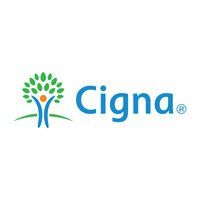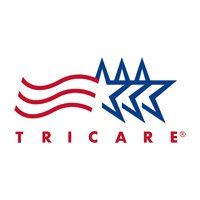Does Depression Make You Tired? Understanding the Link, Exploring Solutions
This is a subtitle for your new post

Feeling tired isn’t uncommon—it’s a sensation many of us experience after a busy day or a restless night. But what happens when fatigue lingers despite adequate rest? This was Megan’s reality before TMS Therapy.
She used to wake up feeling like she hadn’t slept at all. The weight of exhaustion clung to her, making every step a struggle. Getting out of bed felt like trying to lift a boulder off her chest. It wasn’t just tiredness—something deeper was sapping her energy and stealing her joy.
Each day seemed like a battle against an invisible force that weighed her down, making even the simplest tasks feel overwhelming.
For Megan, depression wasn’t simply about feeling sad—it was an overwhelming sense of being utterly drained. Each day felt like a battle against an invisible force, one that weighed her down and made even the smallest tasks seem insurmountable.
The fatigue she experienced wasn’t just physical. It impacted her entire quality of life, dampening her spirits and stealing her motivation. She knew deep down that she needed more than the conventional approaches of medication and therapy to find relief and reclaim her life.
Understanding the Connection Between Depression and Fatigue
Depression affects more than just mood—it impacts energy levels, motivation, and overall quality of life. The brain’s chemistry is altered, disrupting the balance of neurotransmitters that regulate mood and energy. This imbalance can leave individuals feeling fatigued, unmotivated, and struggling to find enjoyment in activities they once loved.
Seeking Effective Solutions
While traditional treatments like medication and therapy are effective for many, some individuals find that depression persists, accompanied by persistent fatigue. This is where alternative treatments like Transcranial Magnetic Stimulation (TMS) Therapy offer new hope.
What is TMS Therapy?
TMS Therapy is a non-invasive procedure that uses magnetic pulses to stimulate specific areas of the brain involved in mood regulation. Unlike medications, which can have systemic side effects, TMS Therapy targets the source of depression symptoms directly. It’s painless, with most patients reporting only a tapping sensation on the scalp during treatment.
How TMS Therapy Helps
For Megan, TMS Therapy was a game-changer. Over several sessions, she began to notice a gradual improvement in her energy levels and mood. The fog of exhaustion lifted, replaced by a renewed sense of vitality and enthusiasm for life.
TMS Therapy offered Megan a personalized treatment plan tailored to her unique needs, ensuring that each session addressed her specific symptoms and responses.
Personalized Care, Lasting Results
One of the most significant advantages of TMS Therapy is its personalized approach. Each treatment plan is crafted in collaboration with healthcare professionals who monitor progress and adjust therapy as needed. This individualized care gives patients like Megan the confidence that they are on a path tailored to their recovery, supported by a team dedicated to their well-being.
The Many Benefits of TMS Therapy
Megan’s journey is just one example of how TMS Therapy has transformed lives. Many patients who have struggled with persistent fatigue as a symptom of depression have found relief through this innovative treatment. They describe feeling more like themselves again—energetic, engaged, and ready to embrace life’s challenges.
Recognizing the signs that lingering exhaustion could indicate depression is crucial for understanding the full scope of this challenging condition.
Here are some signs that chronic exhaustion could indicate depression:
- Persistent feelings of sadness or emptiness
- Loss of interest or pleasure in activities once enjoyed
- Changes in appetite or weight
- Difficulty sleeping or sleeping too much
- Fatigue or loss of energy, even after rest
- Feelings of worthlessness or guilt
- Difficulty concentrating or making decisions
- Thoughts of death or suicide
Beat Depression and Overcome Exhaustion With TMS Therapy in Apex, NC
The relationship between depression and fatigue is profound and often intertwined. Understanding this connection is crucial for anyone navigating the challenges of mental health.
If you or someone you know is experiencing persistent fatigue alongside depression, consider exploring TMS Therapy as an effective treatment option. It offers a promising pathway to renewed energy, improved mood, and a brighter outlook on life.
Take that first step toward healing—because everyone deserves to feel empowered, energized, and ready to face each day with renewed focus.





















